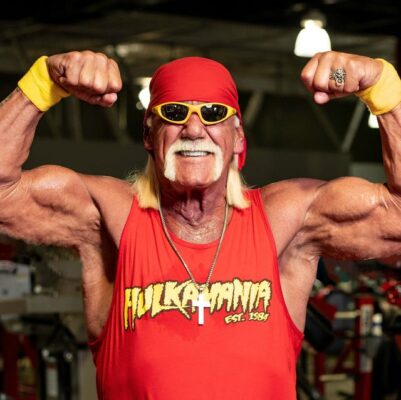Terry Bollea, the iconic professional wrestler famously known as Hulk Hogan is dead.
He died at the age of 71, World Wrestling Entertainment (WWE) confirmed on Thursday.
Terry Bollea, the iconic professional wrestler famously known as Hulk Hogan is dead. He died at the age of 71, World Wrestling Entertainment (WWE) confirmed on Thursday. Regarded as one of the most influential figures in the history of professional wrestling, Hogan played a monumental role in propel...

Terry Bollea, the iconic professional wrestler famously known as Hulk Hogan is dead.
He died at the age of 71, World Wrestling Entertainment (WWE) confirmed on Thursday.